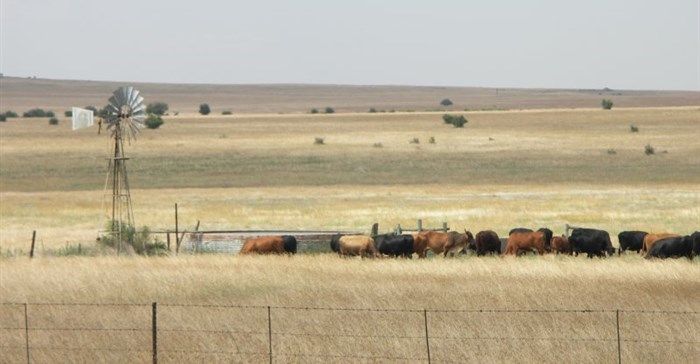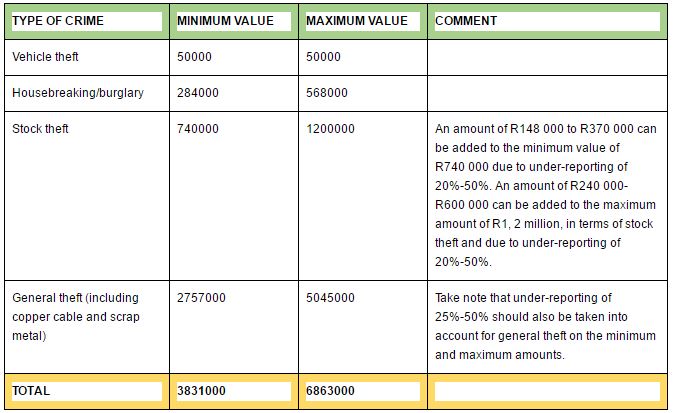
Top stories






More news






Marketing & Media
Prisa's Bradley Howland: The importance of professional associations






According to the survey done among 76 commercial farmers in the Virginia district, their annual loss due to vehicle, stock, and general theft, as well as housebreaking/burglary varies between R3,83 million and R6,863 million. An under-reported figure of 20%-50% was not included in these numbers. Including that, losses can be estimated on R10 million per year. It is important to take note that when an animal (head of cattle, sheep, goat, etc.) is lost due to stock theft, the animal’s possible offspring is also lost.
Also take note that only 24,35% (one-quarter) of commercial farmers have insurance, 51,35% do not have insurance, while the rest cannot be determined. Due to the high cost of insurance for livestock, many farmers cannot afford to insure their livestock. Some farmers also do not qualify for insurance anymore, as they have had to claim for theft many times and are regarded as a high risk.

The type of theft that commercial farmers from Virginia face the most, is theft of scrap metal (that includes iron rods, solar panels, and corrugated iron) followed by copper cable theft and theft of maize and diesel. The number of arrests and prosecutions can be as low as less than 5%, which is a clear indication of why farmers are not happy and satisfied with the progress of investigations and sentencing within the Criminal Justice System.
When a farmer’s solar panels are stolen, he can lose a week’s labour and production to replace the items, not to mention the loss of time and inconvenience it causes. It can take a commercial farmer up to 10 days to have a pivot back in action after the theft. Many hours of labour, as well as production, is lost due to such an incident. When fences and iron rods are stolen, it is a farmer’s responsibility to replace the stolen items as animals can move into road reserves that pose a great risk to motorists in terms of serious accidents or loss of life. To continuously replace fences due to criminal activities cause serious financial costs to a farmer.
Furthermore, the Virginia district is also affected by the presence of Zama-Zamas (illegal miners) that move around on farms, especially close to train tracks. Farmers who are situated in these areas record many incidents of theft of solar panels, scrap metal, and even doors and windows, etc. The Virginia area is surrounded by mines where illegal immigrants live, and many of them let their animals graze in the areas. They also cut farmers' fences, and when they burn gold, wildfires are usually started.
Some of the Zama-Zamas live in old ruins at mines and they are usually armed, which causes more risks for a farmer who wants to remove them from his land. Most of the vehicles active on rural roads at night transport Zama-Zamas that are stealing mining equipment. This can cause large-scale confrontations, as Zama-Zamas are usually armed and farmers are not necessarily prepared for that. Farmers are requested to please break down any old buildings or ruins which are not being used so that it cannot become a hotspot for illegal activities.
The desk applied the statistics supplied by the farmers of Virginia to the province’s 81 other towns. According to this, the losses and added costs are conservatively calculated between R564,411,750 and R1,407,393,500, depending on 25% and 50% under-reporting. The amounts are described as conservative, as Virginia is not a hot spot for stock theft, while this crime is a serious problem in other areas. The cost of participating in white/blue light brigades, that includes a participating farmer’s costs in terms of wear and tear on vehicles used, diesel used as well as equipment needed, is also included in the amount. The costs of safety infrastructure or loss/damage to infrastructure and/or property are also included.